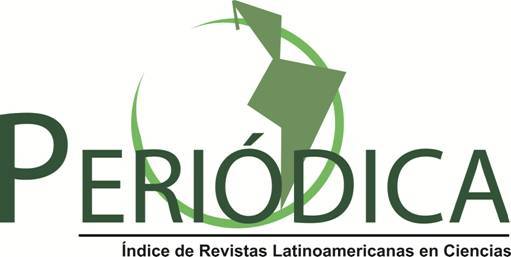Characterization of native plant growth-promoting bacteria (PGPB) and their effect on the development of maize (Zea mays L.)
DOI:
https://doi.org/10.18633/biotecnia.v24i1.1353Palabras clave:
inoculantes microbianos, promoción del crecimiento vegetal, suelo, invernadero.Resumen
El maíz (Zea mays L.) es uno de los cereales más importantes para México y la humanidad. El Valle del Yaqui -ubicado en el noroeste de México- es una de las regiones agrícolas más importantes a nivel mundial, se caracteriza por un uso indiscriminado de fertilizantes inorgánicos para mejorar el rendimiento de los cultivos, lo que genera un mayor costo ambiental y económico de la producción de maíz. En este trabajo se realizó una caracterización morfológica, metabólica y molecular de bacterias nativas asociadas a la rizósfera del maíz y se evaluaron los efectos positivos de la inoculación bacteriana en plantas de maíz bajo condiciones de invernadero. Basándose en la secuencia del gen del 16S ARNr las cepas evaluadas se afiliaron taxonómicamente como Bacillus sp. (13B41), Advenella incenata (22A67), Pantoea dispersa (22B45) y Rhizobium pusense (31B11). Todas estas cepas pudieron sintetizar indoles, producir sideróforos y solubilizar fosfatos. La inoculación individual de estas cepas en maíz mostró un incremento significativo (en comparación con plantas no inoculadas) en altura (35-40 %), peso seco de brotes (244-289 %), peso seco de raíces (99-137 %) y valores SPAD (40-47%). Las bacterias asociadas al maíz nativas del Valle del Yaqui son una alternativa prometedora para promover el crecimiento de su planta hospedante y contribuir a una producción de maíz sostenible.
Descargas
Citas
Agbodjato, N. A., Noumavo, P. A., Adjanohoun, A., Agbessi, L. and Baba-Moussa, L. 2016. Synergistic effects of plant growth promoting rhizobacteria and chitosan on in vitro seeds germination, greenhouse growth, and nutrient uptake of maize (Zea mays L.). Biotechnol Res Int., 2016.
Ahemad, M. and Kibret M. 2014. Mechanisms and applications of plant growth promoting rhizobacteria: current perspective. Journal of King saud University-science, 26: 1-20.
Alexander, D. Z. and Zuberer D. A. 1991. Use of chrome azurol S reagents to evaluate siderophore production by rhizosphere bacteria. Biol Fertil Soils, 12:39-45.
Cohn, F. 1872. Untersuchungen Über Bakterien. Beitrage zur Biologie Pflanz, 1: 127-1224.
Chauhan, H., Bagyaraj, D. J., Selvakumar, G. and Sundaram, S. P. 2015. Novel plant growth promoting rhizobacteria-Prospects and potential. Applied Soil Ecology, 95: 38-53.
Croft, H., Chen, J. M., Luo, X., Bartlett, P., Chen, B. and Staebler, R. M. 2016. Leaf chlorophyll content as a proxy for leaf photosynthetic capacity. Glob Chang Biol., 23: 3513-3524.
de los Santos-Villalobos, S., Barrera-Galicia, G. C., Miranda-Salcedo, M. A. and Peña-Cabriales, J. J. 2012. Burkholderia cepacia XXVI siderophore with biocontrol capacity against Colletotrichum gloeosporioides. World J Microbiol Biotechnol., 28: 2615-2623.
de los Santos-Villalobos, S., Parra-Cota, F. I., Herrera-Sepúlveda, A., Valenzuela-Aragón, B. and Estrada-Mora, J. 2018 Collection of edaphic microorganisms and native endophytes to contribute to national food security. Rev Mex Cienc Agric, 9: 191-202.
de los Santos-Villalobos, S., Robles, R. I., Parra-Cota, F. I., Larsen, J., Lozano, P. and Tiedje, J. M. 2019. Bacillus cabrialesii sp. nov., an endophytic plant growth promoting bacterium isolated from wheat (Triticum turgidum subsp. durum) in the Yaqui Valley, Mexico. Int. J. Syst. Evol. Microbiol., 69: 3939-3945.
de Souza, R., Ambrosini, A. and Passaglia, L. 2015. Plant growth-promoting bacteria as inoculants in agricultural soils. Genet Mol Biol., 38: 401-419.
Duca, D., Lorv, J., Patten, C. L., Rose, D. and Glick, B. R. 2014. Indole-3-acetic acid in plant–microbe interactions. Antonie Van Leeuwenhoek, 106: 85-125.
Dutta, S. and Podile, A. R. 2010. Plant growth promoting rhizobacteria (PGPR): the bugs to debug the root zone. Crit Rev Microbiol., 36: 232-234.
Dworking, M. and Foster, J. W. 1958. Experiments with some microorganisms which utilize ethane and hydrogen. J Bacteriol., 75: 592-602.
Espinosa-Victoria, D., López-Reyes, L. and La Cruz-Benítez, D. 2009. Uso del gen 16s rRNA para caracterización de bacterias solubilizadoras de fosfatos asociadas al maíz. Rev. Fitotec. Mex., 32: 31-37.
FAO. 2020. FAOSTAT. [Accessed 02 April 2020]. Available in: http://www.fao.org/faostat/en/#data/QC
García-Meléndez, M., Zárate-Camargo, G., Meza-Contreras, J. J., Herrera-Sepúlveda, A., De los Santos-Villalobos, S. and Parra-Cota, F. I. 2017. Abiotic stress tolerance of microorganisms associated with oregano (Origanum vulgare L.) in the Yaqui Valley, Sonora. Open Agriculture, 2: 260-265.
Glick, B. R. 2012. Plant Growth-Promoting Bacteria: Mechanisms and applications. Scientifica, 2012:1-15.
Glickmann, E. and Dessaux, Y. 1995. A critical examination of the specificity of salkowski reagent for indolic compounds produced by phytopathogenic bacteria. Appl Environ Microbiol., 61: 793-796.
Hussain, M., Mehmood, S., Zahir, Z. A., Naveed, M., Imran, M., Ahmad, I., Ahmed, N. and Nawaz, H. 2016. Modulating nutrition, physiology, and production of maize through Rhizobium phaseoli and Mesorhizobium ciceri inoculation under drought stress conditions. 7 International Conference on Water Resources and Arid Environments. pp. 549-559. Riyadh, Saudi Arabia.
Kaur, G. and Reddy, M. S. 2013. Phosphate solubilizing rhizobacteria from an organic farm and their influence on the growth and yield of maize (Zea mays L). J Gen Appl Microbiol., 59: 295-303.
Kennedy, A. C. 1999. Bacterial diversity in agroecosystems. Agric Ecosyst Environ., 74: 65–76.
Kobayashi, T. and Nishizawa, N. K. 2012. Iron uptake, translocation, and regulation in higher plants. Annu. Rev. Plant Biol., 63: 131-52.
Kumar, A., Maurya, B. R. and Raghuwanshi, R. 2014. Isolation and characterization of PGPR and their effect on growth, yield and nutrient content in wheat (Triticum aestivum L.). Biocatal Agric Biotechnol., 3: 121-128.
Kumar, S., Stecher, G., and Tamura, K. 2016. MEGA7: Molecular Evolutionary Genetics Analysis version 7.0 for bigger datasets. Molecular Biology and Evolution, 33:1870-1874.
McCullough, E. B. and Matson, P.A. 2016. Evolution of the knowledge system for agricultural development in the Yaqui Valley, Sonora, Mexico. Proc Natl Acad Sci., 113: 4609-4614.
Mehboob, I., Zahir, Z. A., Arshad, M., Tanveer, A. and Khalid, M. 2012. Comparative effectiveness of different Rhizobium sp. for improving growth and yield of maize (Zea mays L.). Soil & Environment, 31: 37-46.
Meza-Montenegro, M. M., Gandolfi, A. J., Santana-Alcántar, M. E., Klimecki, W. T., Aguilar-Apodaca, M. G., Del Río-Salas, R. and Meza-Figueroa, D. 2012. Metals in residential soils and cumulative risk assessment in Yaqui and Mayo agricultural valleys, northern Mexico. Sci Total Environ., 433: 472-481.
Montañez, A., Blanco, A. R., Barlocco, C., Beracochea, M. and Sicardi, M. 2012. Characterization of cultivable putative endophytic plant growth promoting bacteria associated with maize cultivars (Zea mays L.) and their inoculation effects in vitro. Appl Soil Ecol., 58: 21-28.
Naveed, M., Qureshi, M., Zahir, Z., Hussain, M., Sessitsch, A. and Mitter, B. 2014. L-Tryptophan-dependent biosynthesis of indole-3-acetic acid (IAA) improves plant growth and colonization of maize by Burkholderia phytofirmans PsJN. Ann Microbiol., 65: 1381–1389.
Onyia, C. E. and Anyanwu, C. U. 2013. Comparative study on solubilization of tricalcium phosphate (TCP) by phosphate solubilizing fungi (PSF) isolated from Nsukka pepper plant rhizosphere and root free soil. J Yeast Fungal Res., 4: 52–57.
Pande, A., Pandey, P., Mehra, S., Singh, M. and Kaushik, S. 2017. Phenotypic and genotypic characterization of phosphate solubilizing bacteria and their efficiency on the growth of maize. J Genet Eng Biotechnol., 15: 379-391.
Parra-Cota, F. I., Peña-Cabriales, J. J., de los Santos-Villalobos, S., Martínez-Gallardo, N. A. and Délano-Frier, J. P. 2014. Burkholderia ambifaria and B. caribensis promote growth and increase yield in grain amaranth (Amaranthus cruentus and A. hypochondriacus) by improving plant nitrogen uptake. PloS one, 9(2).
Qureshi, M. A., Shahzad, H., Imran, Z., Mushtaq, M., Akhtar, N., Ali, M. A. and Mujeeb, F. 2013. Potential of Rhizobium species to enhance growth and fodder yield of maize in the presence and absence of l-tryptophan. J Anim Plant Sci., 23: 1448-1454.
Sansinenea, E. 2019. Bacillus spp.: As plant growth-promoting bacteria. In: Secondary Metabolites of Plant Growth Promoting Rhizomicroorganisms. Singh, H. B., Keswani, C., Reddy, M. S., Royano, E. S., García-Estrada, C.U. (Eds), pp. 225-237. Springer, Singapore.
Setter, T. L. and Meller, V. H. 1984. Reserve carbohydrate in maize stem: [14C] glucose and [14C] sucrose uptake characteristics. Plant Physiol., 75: 617-622.
Seyed Sharifi, R., Khalilzadeh, R. and Soltanmoradi, S. 2017. Evaluation effects of mycorrhizal fungi (AM) and nano zinc oxide on seed yield and dry matter remobilization of wheat (Triticum aestivum L.) under salinity stress. Journal of Crop Nutrition Science, 3: 61-69.
Shahzad, S. M., Khalid, A., Arshad, M., Khalid, M. and Mheboob, I. 2008. Integrated use of plant growth promoting bacteria and P-enriched compost from improving growth, yield and nodulation of chickpea. Pak J Bot., 40: 1735-1441.
Sharon, J. A., Hathwaik, L. T., Glenn, G. M., Imam, S. H. and Lee, C. C. 2016. Isolation of efficient phosphate solubilizing bacteria capable of enhancing tomato plant growth. J. Soil Sci. Plant Nutr., 16: 525-536.
SIAP-SADER. Servicio de Información Agroalimentaria y Pesquera (SIAP). [Accessed March 31 2020]. Available in: http://nube.siap.gob.mx/cierre_agricola/
Silva, K., Perin, L., Gomes, M. D., Baraúna, A. C., Duarte, G. M., Mosqueira, C. A., da Costa, I. B., O´hara, G. and Zilli, J. É. 2016. Diversity and capacity to promote maize growth of bacteria isolated from the Amazon region. Acta Amazon., 46: 111-118.
Singh, P., Kumar, V. and Agrawal, S. 2014. Evaluation of phytase producing bacteria for their plant growth promoting activities. Int J Microbiol, 2014.
Spaepen, S. and Vanderleyden, J. 2011. Auxin and plant-microbe interactions. Cold Spring Harb Perspect Biol., 3: a001438.
Trabelsi, D. and Mhamdi, R. 2013. Microbial inoculants and their impact on soil microbial communities: a review. BioMed Res Int., 2013.
Valenzuela-Aragon, B., Parra-Cota, F. I., Santoyo, G., Arellano-Wattenbarger, G. L. and de los Santos-Villalobos, S. 2019. Plant-assisted selection: a promising alternative for in vivo identification of wheat (Triticum turgidum L. subsp. Durum) growth promoting bacteria. Plant and soil, 435: 367-384.
Villarreal-Delgado, M. F., Villa-Rodríguez, E. D., Cira-Chávez, L. A., Estrada-Alvarado, M. I., Parra-Cota, F. I. and de los Santos-Villalobos, S. 2018. El género Bacillus como agente de control biológico y sus implicaciones en la bioseguridad agrícola. Rev. Mex. Fitopatol., 36: 95-130.
Viruel, E., Erazzú, L., Calsina, L., Ferrero, M., Lucca, M. and Siñeriz, F. 2014. Inoculation of maize with phosphate solubilizing bacteria: effect on plant growth and yield. J Soil Sci Plant Nutr., 14: 819-831.
Wang, J., Li, R., Zhang, H., Wei, G. and Li, Z. 2020. Beneficial bacteria activate nutrients and promote wheat growth under conditions of reduced fertilizer application. BMC microbiology, 20: 1-12.
Weisburg, W., Barns, S., Pelletier, D. and Lane, D. 1991. 16S Ribosomal DNA amplification for phylogenetic study. J Bacteriol., 173: 697-703.
Descargas
Publicado
Cómo citar
Número
Sección
Licencia
Derechos de autor 2022

Esta obra está bajo una licencia internacional Creative Commons Atribución-NoComercial-CompartirIgual 4.0.
La revista Biotecnia se encuentra bajo la licencia Atribución-NoComercial-CompartirIgual 4.0 Internacional (CC BY-NC-SA 4.0)
















_(2).jpg)








